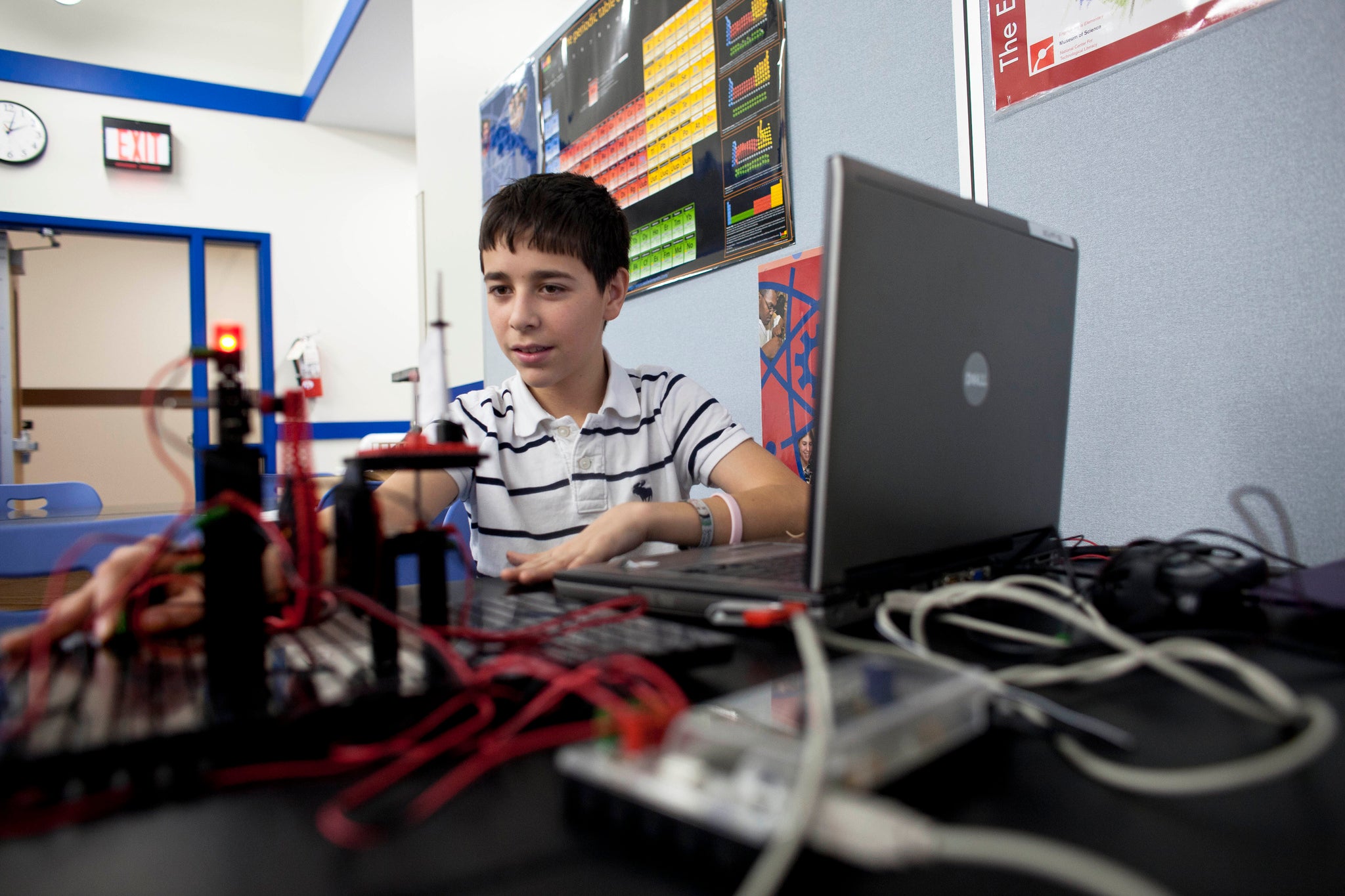Educators call for reform in how programming is taught in schools
One survey found that 54 per cent of teachers felt their students knew more about ICT than they did

Teachers lacking the confidence to teach pupils computer programming skills need to change the way they approach their subject, a pioneering educator has said.
Computer teacher Alan O'Donohoe runs a series of workshops across the country aimed at introducing coding to youngsters.
But rather than formally teaching programming, he says he provides the right environment for pupils to explore the subject themselves. He admits he could not possibly teach children everything they need to know about computing.
There appears to be a lack of confidence among computing teachers. According to a survey by social enterprise company MyKindaCrowd, 54 per cent of teachers believe their students know more about ICT and computing than they do.
The poll of secondary school teachers showed that 74 per cent of ICT teachers do not believe they have the right skills needed to deliver the new computing curriculum which is set to roll out in September next year.
They also fear they do not have the time to learn the necessary skills.
Mr O'Donohoe, the principal teacher of Computing at Our Lady's High School in Preston founded the nationwide Hack to the Future and Raspberry Jam out-of-school events, and wants to boost teachers' confidence in their own abilities.
“I quickly discovered that I had to totally change my approach to teaching Computing,” he says. “Where I once believed I was 'the guardian of knowledge' and all learning was accessed through me, I now realise that I am more of a facilitator. I can never possibly know everything that my pupils might choose to learn. Instead, to arouse their interest and curiosity, I provide them with an environment with discovery and challenge and questions are welcomed.”
He primarily uses the Raspberry Pi computer – a £25 basic machine which allows for experimentation and coding – to open up the subject and his events have proven to be as popular among teachers as children.
“The main motive for setting up the jams was to allow for a classroom in which anybody could teach or learn, not just the preserve of teachers and pupils,” he says. “Teachers who attend the Jams tell met that they like attending the jams since the can both test things out that they wouldn't yet want to risk in a classroom and at the same time discover what appeals to their pupils.”
Such is the concern about the current abilities of computing teachers to teach coding, a briefing attended by Conservative MP for South West Norfolk Elizabeth Truss was held in London last month to discuss the issue.
As Parliamentary Under-Secretary of State with responsibility for education and childcare in the Department for Education she told of the need for children aged 11 and over to learn to program in two languages and the reasons for curriculum reform.
She said: “There is a massive imperative to make sure that all of our young people leave school with those really high level skills.” She said she wanted primary school pupils to understand algorithms and learn basic programming languages using packages such as Scratch.
Will Ackerman, managing director of MyKindaCrowd, was invited to the meeting after his survey discovered 69 per cent of teachers don’t think the Government will provide enough support for them and 96 per cent would welcome the closer involvement of business to help them build the practical skills and knowledge of their students.
“From our anecdotal knowledge and our survey, it is clear teachers don't feel able or prepared to teach the new curriculum,” Mr Ackerman said. “There has been a shift and it is a tremendous one but teachers have to hit the ground running. It could be fantastic and close the skills gap but people will say the initiative has not worked if teachers are not in the position where they can teach.”
He says the ICT curriculum for the past 15 to 20 years has been about consumption. “Children have not been taught to code and have only been taught Word, Excel, PowerPoint and so on,” Mr Ackerman says. “We have just been teaching skills that are not transferable to the workplace.”
He believes there will be even greater opportunities for programmers in the future. “Healthcare is as much about IT and coding as chemistry,” he says. “And if you look at the motoring industry Google is making headway with automatic cars and Milton Keynes will have driverless taxis over the next couple of years. Computing is driving industry.”
Companies and broadcasters are also getting involved. The BBC announced last month that, 30 years after putting BBC Micro computers into UK schools, it wants to “bring coding into every home, business and school in the UK.”
Director General Tony Hall said the initiative would launch in 2015 a year after education secretary Michael Gove wants the new Computing curriculum to roll out in schools.
Subscribe to Independent Premium to bookmark this article
Want to bookmark your favourite articles and stories to read or reference later? Start your Independent Premium subscription today.

Join our commenting forum
Join thought-provoking conversations, follow other Independent readers and see their replies